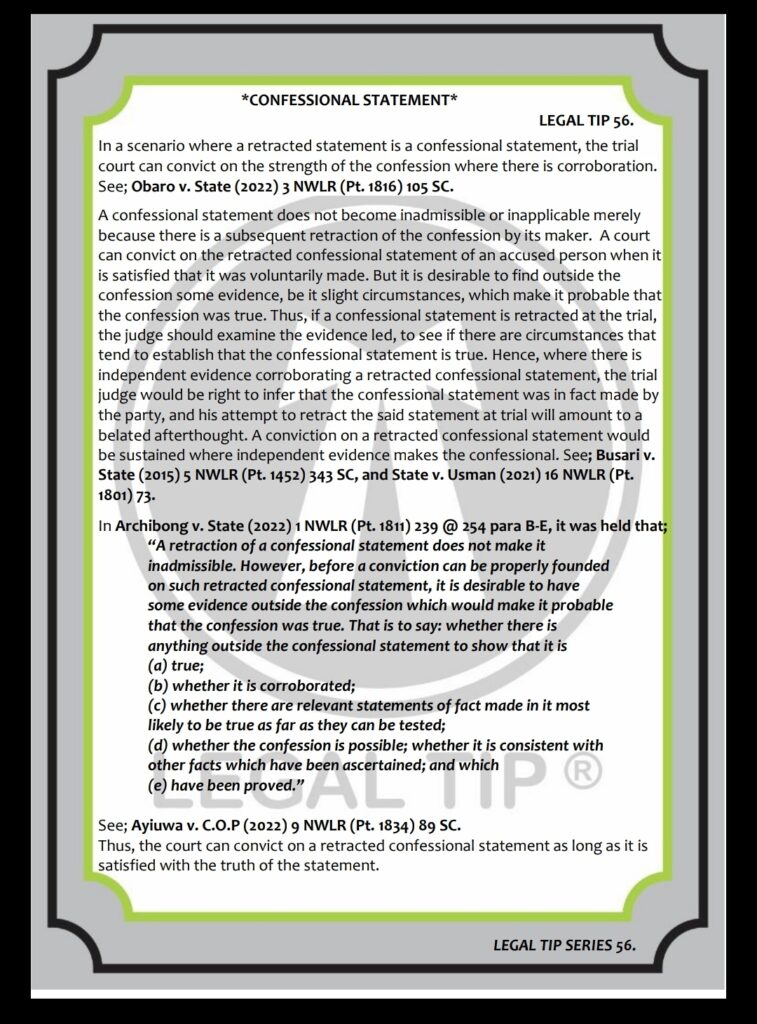In a scenario where a retracted statement is a confessional statement, the trial court can convict on the strength of the confession where there is corroboration. See; Obaro v. State (2022) 3 NWLR (Pt. 1816) 105 SC.
A confessional statement does not become inadmissible or inapplicable merely because there is a subsequent retraction of the confession by its maker. A court can convict on the retracted confessional statement of an accused person when it is satisfied that it was voluntarily made. But it is desirable to find outside the confession some evidence, be it slight circumstances, which make it probable that the confession was true. Thus, if a confessional statement is retracted at the trial, the judge should examine the evidence led, to see if there are circumstances that tend to establish that the confessional statement is true. Hence, where there is independent evidence corroborating a retracted confessional statement, the trial judge would be right to infer that the confessional statement was in fact made by the party, and his attempt to retract the said statement at trial will amount to a belated afterthought. A conviction on a retracted confessional statement would be sustained where independent evidence makes the confessional statement. See; Busari v. State (2015) 5 NWLR (Pt. 1452) 343 SC, and State v. Usman (2021) 16 NWLR (Pt. 1801) 73.

In Archibong v. State (2022) 1 NWLR (Pt. 1811) 239 @ 254 para B-E, it was held that;
“A retraction of a confessional statement does not make it inadmissible. However, before a conviction can be properly founded on such retracted confessional statement, it is desirable to have some evidence outside the confession which would make it probable that the confession was true. That is to say: whether there is anything outside the confessional statement to show that it is
(a) true;
(b) whether it is corroborated;
(c) whether there are relevant statements of fact made in it most likely to be true as far as they can be tested;
(d) whether the confession is possible; whether it is consistent with other facts which have been ascertained; and which
(e) have been proved.”
See; Ayiuwa v. C.O.P (2022) 9 NWLR (Pt. 1834) 89 SC.
Thus, the court can convict on a retracted confessional statement as long as it is satisfied with the truth of the statement.
LEGAL TIPS is anchored by Ms CIA Ofoegbunam, an Abuja-based lawyer who is passionate about legal practice.LEGAL TIPS offers quick hints on substantive law, as well as rules of practice and procedure, and serves as a handy reference guide to lawyers, especially in court.Published on a weekly basis, the LEGAL TIPS Series is CIA’s modest contribution to legal development in Nigeria.



